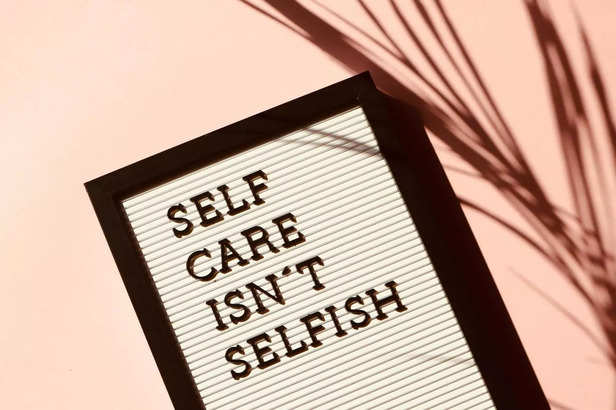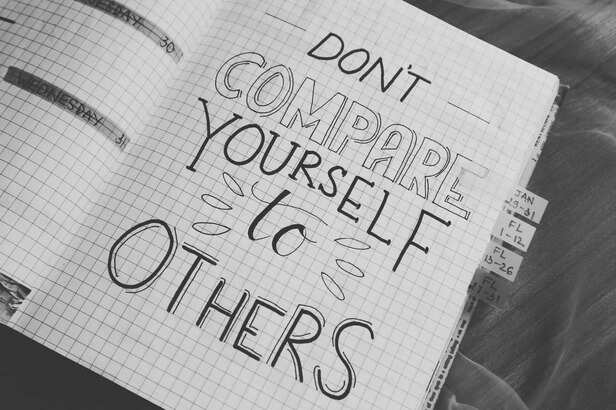Self-Worth vs. Approval: The Bhagavad Gita’s Lesson on True Confidence
Riya Kumari | Mar 15, 2025, 23:18 IST
Let’s talk about confidence. You know, that elusive, mythical creature we all claim to have until someone leaves us on read for three hours. And then suddenly, we’re spiraling, refreshing our messages like a deranged scientist conducting a failed experiment. And validation? Oh, it’s a delicious drug. A double-tap on your selfie, an enthusiastic “Yasss!” in the group chat, a “We need more people like you” from a LinkedIn stranger who definitely copied their motivational post from somewhere else. But the problem? Validation expires. Like last week’s avocado.
There’s a moment in life—maybe it’s after a rejection, a failure, or just an unanswered text—when you wonder: Am I not enough? We’ve all been there. Grasping at compliments, achievements, or approval, hoping they will build us up. But no matter how much we collect, it never seems to last. Confidence feels fragile. Self-worth feels conditional. That’s because most of us have been taught to build ourselves on validation—what others think, say, or acknowledge about us. But the Bhagavad Gita, one of the greatest teachings on human nature, has a different take: true self-worth isn’t given. It’s realized. And once you truly understand this, no rejection, failure, or silence can shake you.

When Arjuna, a warrior, stands on the battlefield paralyzed with doubt, Krishna tells him: “Do your duty without attachment to results.” At first glance, this sounds like generic motivational advice—do your work, don’t worry about the outcome. But beneath it lies something deeper:
Your value isn’t determined by how the world responds to you. It exists independently, whether or not anyone acknowledges it.
But here’s the problem—most of us have built our self-worth like a performance. We work harder, achieve more, look better, all in the hope that someone will say, “Yes, you’re enough.” But what happens when no one says it? Or worse—when someone tells you the opposite? The Gita’s wisdom is clear: your worth cannot be borrowed from other people’s opinions. Because the moment it is, you have handed over your power. You are no longer free. You are a performer, waiting for applause that may never come.

Validation feels good. It reassures us that we are seen, appreciated, admired. But it is also a dangerous addiction. The Gita warns about the instability of external attachment. When your confidence depends on what others give you—praise, love, admiration—you will always be at their mercy. This is why even the most outwardly confident people sometimes crumble. A successful entrepreneur, a beloved artist, an admired leader—if their self-worth is built on their success, what happens when they fail?
Krishna’s message is simple: detach. Not from love, not from passion, but from the need to be validated. Because once you stop depending on approval, confidence is no longer something that fluctuates. It becomes something you carry with you, in every situation, no matter what the world says.

We often mistake confidence for loudness—for proving, performing, or convincing others of our greatness. But true confidence does none of that. It does not announce itself. It does not chase approval. It does not crumble in the face of doubt.
The most confident person in the room is not the one who needs to be seen. It’s the one who knows who they are, even when no one is looking. This is the wisdom of the Gita—self-worth is not something you find outside. It is something you uncover within. And once you do, it can never be taken from you.

So how do you build unshakable self-worth? How do you stop needing validation? Start by asking a different question.
Instead of “What do they think of me?” ask, “What do I think of me?” Because that is the only voice that stays with you. The world’s opinion is temporary. Your relationship with yourself is lifelong. And when you finally stop chasing approval, something incredible happens—You become free.
Not because people stop judging you, but because their judgment no longer controls you. Not because rejection disappears, but because it no longer defines you. Not because failure won’t come, but because it won’t break you when it does. And that, right there, is self-worth that nothing can shake.
1. Your Worth Doesn’t Need an Audience

Love
( Image credit : Pexels )
When Arjuna, a warrior, stands on the battlefield paralyzed with doubt, Krishna tells him: “Do your duty without attachment to results.” At first glance, this sounds like generic motivational advice—do your work, don’t worry about the outcome. But beneath it lies something deeper:
Your value isn’t determined by how the world responds to you. It exists independently, whether or not anyone acknowledges it.
But here’s the problem—most of us have built our self-worth like a performance. We work harder, achieve more, look better, all in the hope that someone will say, “Yes, you’re enough.” But what happens when no one says it? Or worse—when someone tells you the opposite? The Gita’s wisdom is clear: your worth cannot be borrowed from other people’s opinions. Because the moment it is, you have handed over your power. You are no longer free. You are a performer, waiting for applause that may never come.
2. The Trap of Validation

Beautiful
( Image credit : Pexels )
Validation feels good. It reassures us that we are seen, appreciated, admired. But it is also a dangerous addiction. The Gita warns about the instability of external attachment. When your confidence depends on what others give you—praise, love, admiration—you will always be at their mercy. This is why even the most outwardly confident people sometimes crumble. A successful entrepreneur, a beloved artist, an admired leader—if their self-worth is built on their success, what happens when they fail?
Krishna’s message is simple: detach. Not from love, not from passion, but from the need to be validated. Because once you stop depending on approval, confidence is no longer something that fluctuates. It becomes something you carry with you, in every situation, no matter what the world says.
3. True Confidence Is Quiet

Self care
( Image credit : Pexels )
We often mistake confidence for loudness—for proving, performing, or convincing others of our greatness. But true confidence does none of that. It does not announce itself. It does not chase approval. It does not crumble in the face of doubt.
The most confident person in the room is not the one who needs to be seen. It’s the one who knows who they are, even when no one is looking. This is the wisdom of the Gita—self-worth is not something you find outside. It is something you uncover within. And once you do, it can never be taken from you.
4. The Only Approval That Matters

Comparison
( Image credit : Pexels )
So how do you build unshakable self-worth? How do you stop needing validation? Start by asking a different question.
Instead of “What do they think of me?” ask, “What do I think of me?” Because that is the only voice that stays with you. The world’s opinion is temporary. Your relationship with yourself is lifelong. And when you finally stop chasing approval, something incredible happens—You become free.
Not because people stop judging you, but because their judgment no longer controls you. Not because rejection disappears, but because it no longer defines you. Not because failure won’t come, but because it won’t break you when it does. And that, right there, is self-worth that nothing can shake.
